PERSPECTIVE
LATEST
-
2 hours ago in Analysis
-
3 hours ago in Reports
-
4 hours ago in Middle East
-
4 hours ago in Analysis
-
hours ago in Variety
-
5 hours ago in Middle East
-
6 hours ago in Middle East
-
6 hours ago in World
-
6 hours ago in Middle East
-
7 hours ago in Middle East
-
2 hours ago in Analysis
Is Iraq’s Kurdish region outside of ISIS’ calculus?
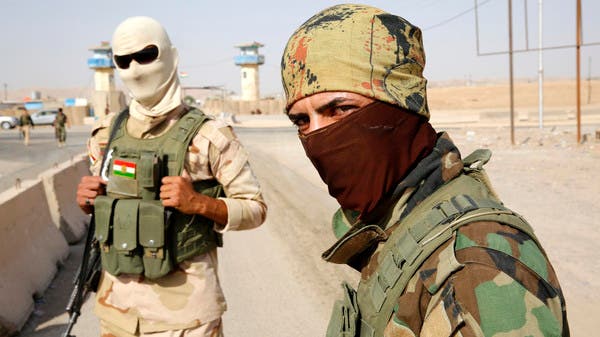
Members of the Kurdish peshmerga stand guard at a checkpoint at Tuz
Khurmato village in Salahuddin Province. (File photo: Reuters)
Dina al-Shibeeb, Al Arabiya News
Sunday, 20 July 2014
Initially, some observers believed that the lack of an overt confrontation between ISIS and Kurds in Iraq was due to some understanding between the two sides. In addition, Maliki accused the Kurdistan Regional Government of supporting ISIS.
“The loose alliance of insurgents is united by only one common objective: a desire to take Baghdad and topple Maliki’s regime, which they consider to be an Iranian proxy,” Ali Khedery, who was the longest continuously serving American official in Iraq from 2003 to 2009, told Al Arabiya News.
“They haven’t attacked Kurdistan because they don’t want to open a second front while they battle,” Khedery, who is now chairman and chief executive of the Dubai-based Dragoman Partners, added.
“I believe Maliki accused the Kurds of helping ISIS because he considers the entire Sunni Arab insurgency to be composed of ISIS. In reality, the forces fighting Maliki’s government are 5 to 10% ISIS, 20% Baathist elements, and 70-75% Sunni Arab tribal elements.”
Iraq’s late dictator President Saddam Hussein ruled the country under the socialist Baath Party from 1979 until he was toppled during the U.S. invasion of 2003.
“Since some of the Baathist and tribal leaders like Sheikh Ali Hatem and Ahmed Dabbash now have a base in Arbil [KRG’s capital], Maliki believes there is a master conspiracy against him,” Khedery said.
Michael P. Pregent, a former U.S. Army officer who was an embedded advisor with Peshmerga forces in the cities of Mosul and Dahuk, described Maliki’s accusation as “false,” saying that the incumbent prime minister “is upset that the Kurds that they didn’t fight ISIS in Mosul,” which is still held by the militants since a lightning offensive by the radical group in June.
Pregent told Al Arabiya News that “the main reason ISIS isn’t fighting the Kurds in Iraq is because in Iraq the Kurds have a national border that they protect and man with checkpoints with well-armed Peshmerga [tanks, artillery, heavy crew served weapons].”
Unlike the rest of Iraq and Syria, where the security situations are characterized by increasing deterioration, The Kurds have excelled at maintaining security to high levels.
“[The Kurds in Iraq] know who comes in and who comes out [of their territory],” Pregent, who is now an adjunct lecturer at the National Defense University, College of International Security Affairs in Washington, said.
“They have a very experienced and disciplined Peshmerga militia that will protect Kurdish areas and interests,” he added, highlighting how “Sunnis, Christians, and even Shiites go to Kurdistan to escape violence in Iraq because they know the Kurdish areas are well protected.”
Like Khedery, who pointed to ISIS’s political agenda to topple Maliki’s administration, Pregent believes that the premier’s disenfranchisement of the Sunnis led to a fertile ground for ISIS to operate in.
“ISIS’ success depends on an oppressive Shiite government that marginalizes Sunnis in both Syria and Iraq – ISIS will not gain supporters in Kurdish areas because the Kurds are already protecting their areas from Maliki’s oppressive government,” the former army officer said.
Alliance with Arab tribes
Kirkuk-based strategic analyst Abdulrahman al-Sheikh described how Sunni Arab tribes in Kirkuk are paramount in fending off the ISIS threat from creeping into Kirkuk as they enjoy the respect of both the Peshmerga and radical Islamists.“There are strong ties between Kurds and the Sunni Arab tribes in Kirkuk, so the fears are less in comparison [to the ISIS-held] Tikrit,” Sheikh said.
On Wednesday, Iraq state forces, facing heavy opposition, withdrew from the northern city of Tikrit after a renewed effort to take back Saddam’s hometown.
In spite of KRG’s strengths, there were clashes on Thursday between ISIS and Peshmerga forces 20 kilometers south of Kirkuk.
“This was an attempt to provoke the Peshmerga,” said Sheikh, “but respected Arab tribes intervened to end the skirmish.”
While Pregent expects that there will be fighting “in areas not traditionally under Kurdish control,” he said “so far we haven’t seen any incursions into recognized Kurdish areas.”
Last Update: Sunday, 20 July 2014 KSA 19:20 - GMT 16:20
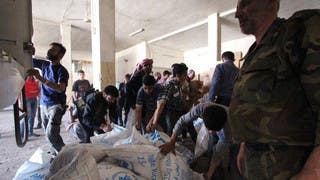
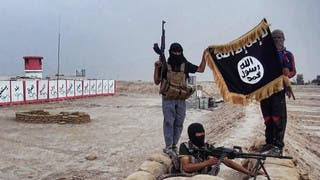

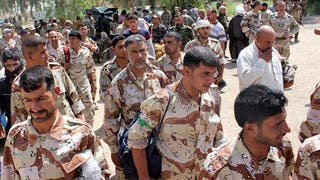
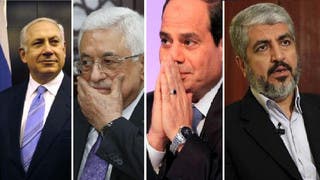
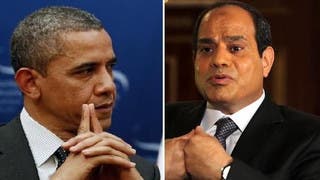

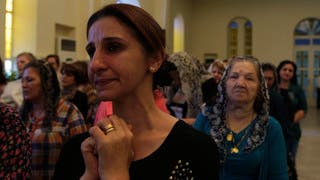
No comments:
Post a Comment
Please leave a comment-- or suggestions, particularly of topics and places you'd like to see covered